Biography
Nikolay Berdyaev is an outstanding thinker whose philosophy combined the approaches of Kant and Schopenhauer, the opponent of the chosenness and a supporter of personal freedom. Being a religious person, he believed that both communism and fascism suggest rejecting moral and religious conscience. His ideas made at the dawn of the 20th century are so relevant that the quotes from the works of the philosopher used the head of state in the Epistle to the Russian parliament.Childhood and youth
Nikolai was born in March 1874 near Kiev, in a generic estate, a complained grandfather Emperor Paul I. The family was an aristocratic. Father Alexander Mikhailovich - a descendant of the Tatar princes of Bakhmetyev. The ancestors of Mother Alexandra Sergeyevna, in the Maiden Kwards - representatives of the ancient genera of Mnishek, Pototsky and even the King of France Louis VI.
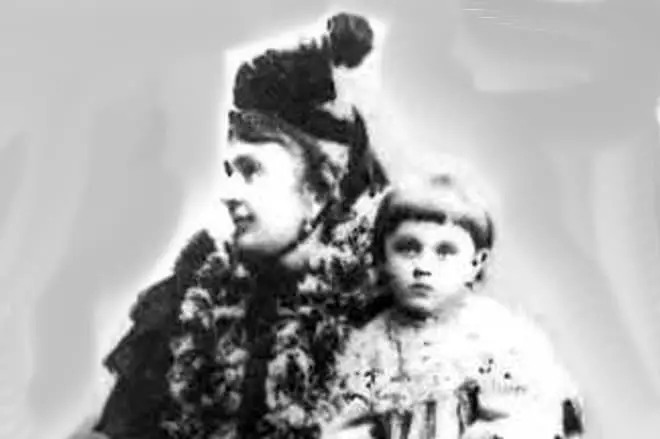
Nikolai and Senior Brother Sergey received the initial home education, owned several foreign languages. Stunned Kolya studied in the Vladimir and Kiev Cadet Corps. Then, according to the family tradition, it was supposed to enter the Prazi Corps, but chose to engage in self-education. In 1894 Berdyaev received a certificate of maturity of the Kiev-Pechersk gymnasium.
In the same year, Nikolai entered the University of St. Vladimir, to the Physics and Mathematics Faculty, after a year he was transferred to the legal. But it was not possible to get a diploma of the educational institution Berdyaev: for participating in the student Marxist circle of self-development and the Kiev "University of the struggle for the liberation of the working class", it was excluded from the university. Before that, the young man was arrested twice for participation in anti-government demonstrations.
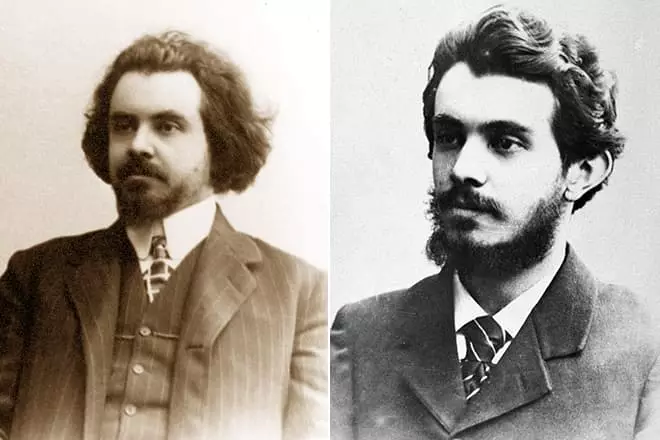
In 1900, Nikolai was sent to the Vologda province under police supervision. There, the young philosopher wrote the book "Subjectivity and individualism in public philosophy." A well-known publicist and economist Peter Struve, before his departure to Germany, prepared a preface for it. Berdyaev joined the political movement "Union of Liberation" organized with comrades.
Berdyaeva's biography reflected the time in which he lived: a revolutionary movement, the search for new ideals, throwing from extreme to extreme. Nikolay Alexandrovich witnessed and one of the creators of that process, which called the "Russian Renaissance of the beginning of the twentieth century."
Philosophy
The philosophical views of Nikolai Berdyaev were based on denial or, in any case, criticism of teleology and rationalism. These concepts, from its point of view, destroyably affect the freedom of personality, namely, the existence of an existence is the meaning of the individual.
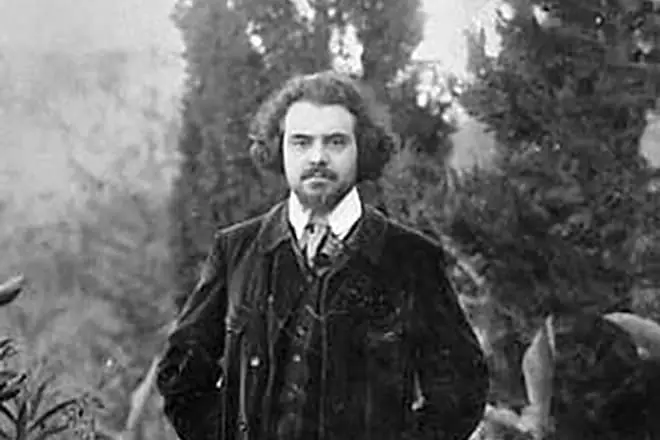
Personality and individuals are the opposite concepts. The thinker believed that the first was a spiritual category, ethical, second - natural, part of society. The personality is essentially not affixed and does not apply to any nature, nor to the church or to the state. Freedom for Berdyaev is a given, it is prim than from the nature and man, independent of the Divine. If it violates the "Divine Hierarchy of Being," evil appears.
In the work of "Man and Machine" considers the technique as a way of liberating a human spirit, but it fears that the substitution of values may occur, and a person will lose spirituality and kindness. And then the question arises, and what will give people deprived of these qualities to the future world. After all, spirituality is not only a connection with God, it is primarily in touch with the world and how a person reflects this world through himself.
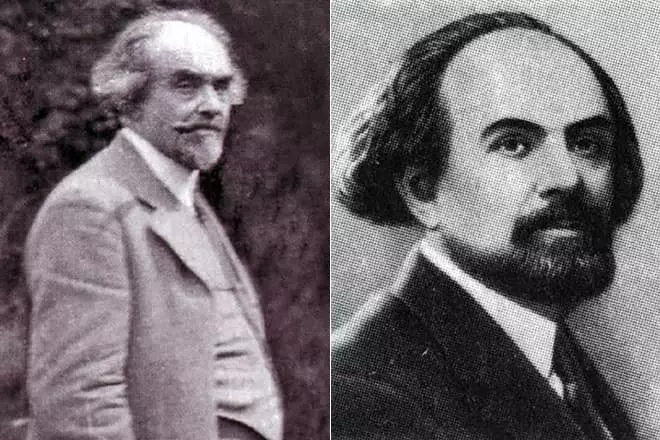
There is a paradox. Technical progress moves forward culture, art, changes the moral foundations. Yes, and life is moving forward. On the other hand, excessive worship of technical innovations deprives humanity incentive in achieving cultural progress. And here again rises the topic of freedom of spirit
At the beginning of his philosophical surveys, Nikolay Alexandrovich admired the ideas of Karl Marx. However, later, reflecting on the development of communist ideas in Russia, in the book "The origins and meaning of Russian communism" directly noticed that one Marxism in this case is not enough.
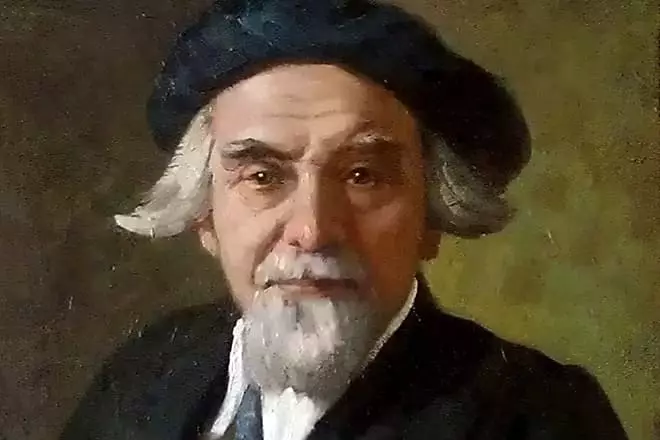
In the work "Russian Idea", the philosopher tried to answer the question of what it was a mysterious Russian soul. Berdyaev uses bright images and allegories, historical parallels and aphorisms. As examples, there are events of wide time frame - from the Avvakum Protopopa to Vladimir Lenin, from the Baptism of Russia to the October Revolution.
According to Berdyaev, the Russian people are not inclined to blindly follow the dogma of the law, much more meaning and weight is inserted into content than in the form. The idea of "Russianness" lies in the "Freedom of Love in the deep and clean sense of the word."
Personal life
Berdyaev's wife, Lydia Yudifovna Dogushev, was from the family of a noble lawyer, an honorary citizen of Kharkov. The girl was educated in the guesthouse in Switzerland, and after, together with the sister, Evgenia spent a month in prison on suspicion of political activities, the mother sent them to Paris, to the Russian School of School of Social Sciences.
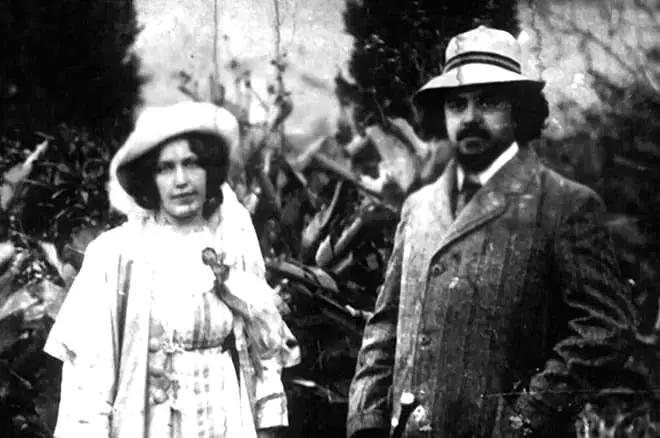
At the time of acquaintance with Berdyaev, Lida was married to a hereditary nobleman and a supporter of Social Democratic ideas Viktor Rappa. Druzeyev succumbed to this treason. After another arrest, Lidia and her husband were sent from Kharkov to Kiev, where in February 1904 she met Nikolai.
In the fall of the same year, Berdyaev offered a woman to leave him in St. Petersburg, and since then the couple has not parted anymore. However, Lida and Nikolai did not live like her husband and wife in the traditional sense, but, according to sisters, Druševa - Eugene, as the "first apostles", as if brother and sister.
Much more meaning of Berdyaev invested in a spiritual marriage. This was written in diaries and Lydia Judifovna, stressing that the value of their union was in the absence of "anything sensual, bodily, to which we treat and have always treated with the same contempt."
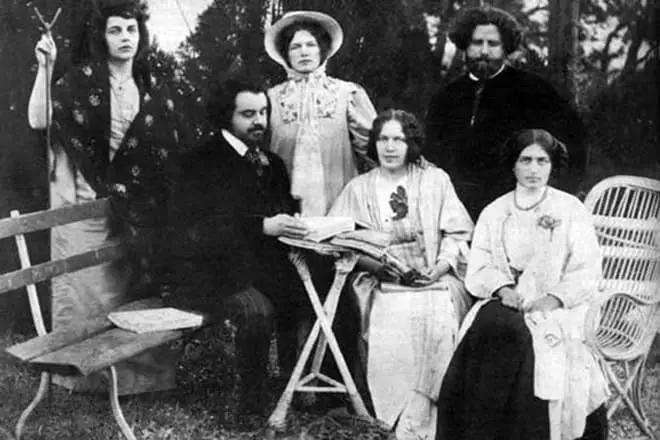
The area of activity for himself elected charity, helped Nicholas in work, made the correctional editing of his work. It was not alone Berdyaeva and creativity - wrote poems and notes, but did not seek to be printed.
In 1922, Berdyaev's family left the country. Nikolai Alexandrovich was sent, and Lydia, of course, could not leave him alone. In addition, in 1917 she changed faith - passed into Catholicism, the persecution of Catholics began in Soviet Russia. At first, Berdyaev, as well as the mother and sister of Lida lived in Berlin, then moved to France, where the family friend Flat West left the house. There Nikolai wrote the autobiography of "self-knowledge", which was published after his death.
Death
The Russian philosopher died on a foreign land, in the suburbs of Paris - Clamar, in March 1948. Three years before, Lydia Judifovna died from cancer. Her sister Eugene helped through the house. She found Berdyaev in the office for a writing desk. Until the last minute, the thinker worked - prepared the manuscript of the book "The Kingdom of Spirit and the Kingdom of Caesar."
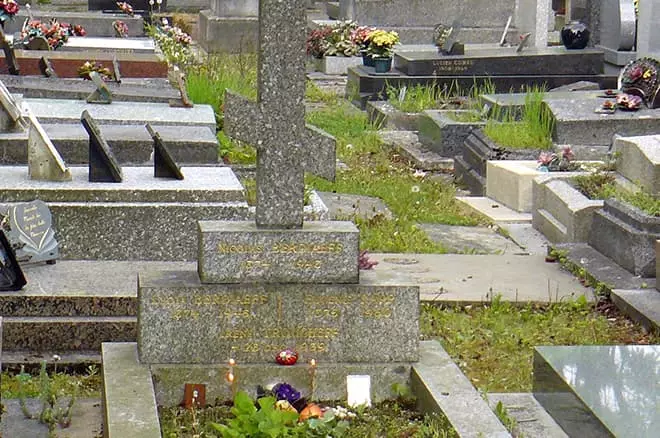
Nikolai Alexandrovich's house bequeathed the Russian Orthodox Church abroad. Elevate on the Orthodox Custom held several priests. They personally knew Berdyaev and wanted to spend it on the last path. On the grave of the philosopher installed only the usual cross.
Bibliography
- 1909 - "Milestones"
- 1913 - "Duchets of the Spirit"
- 1915 - "Soul of Russia"
- 1918 - "From the depths"
- 1924 - "New Middle Ages"
- 1931 - "Christianity and class struggle"
- 1931 - "Russian Religious Psychology and Communist Atheism"
- 1934 - "I and the world of objects (the experience of solitude and communication philosophy)"
- 1939 - "On slavery and freedom of man. Personalistic philosophy experience
- 1940 - "Self-knowledge"
